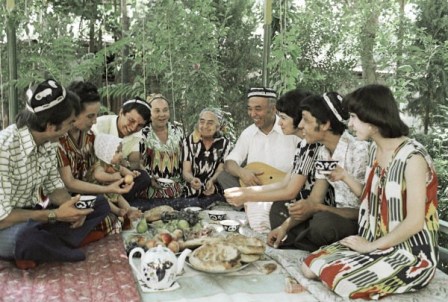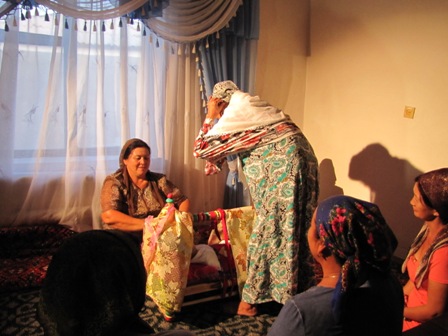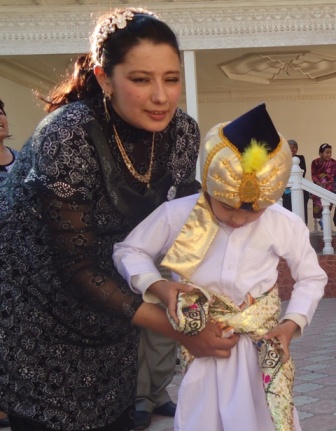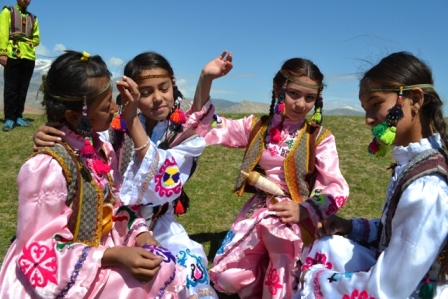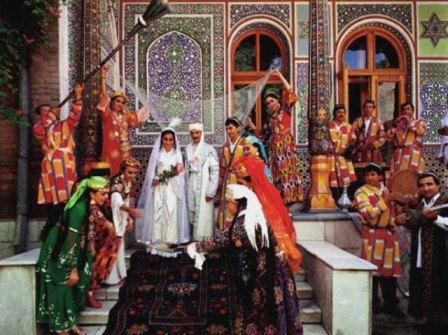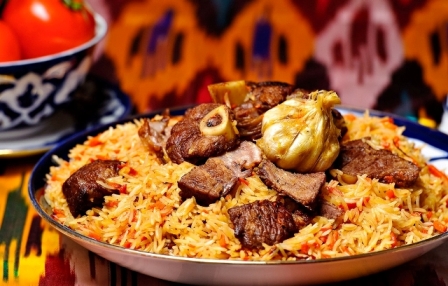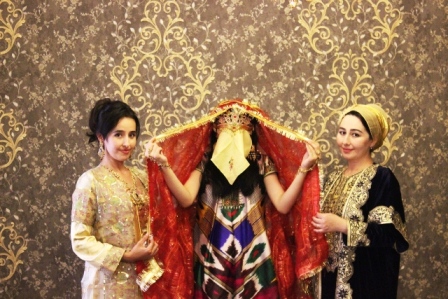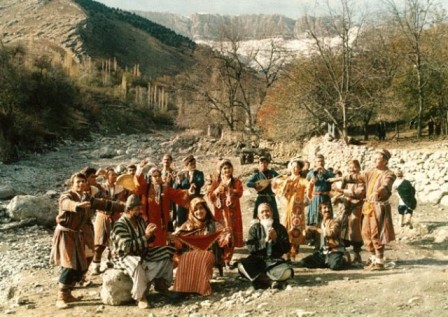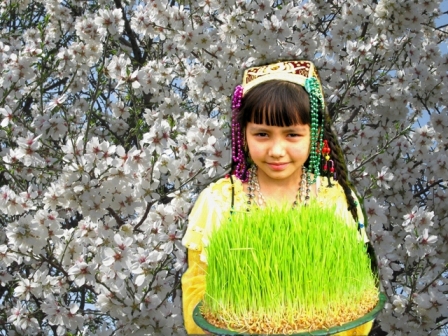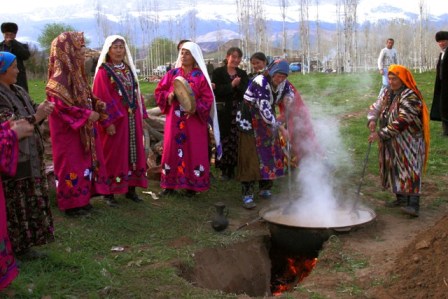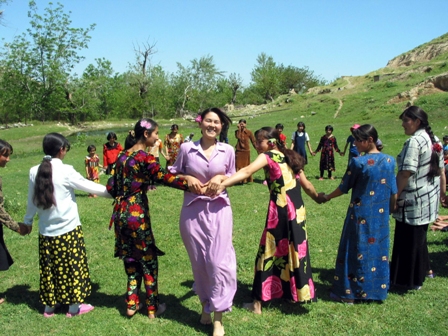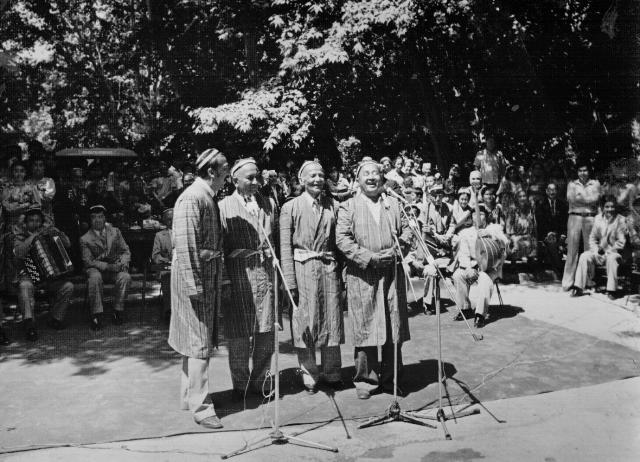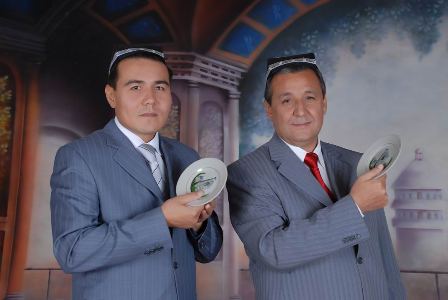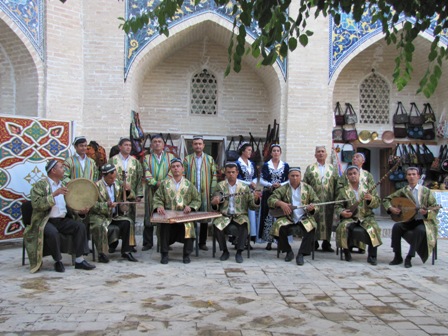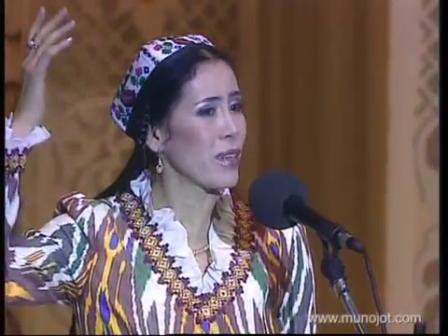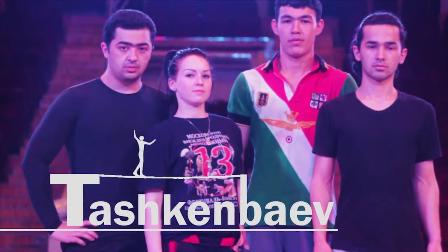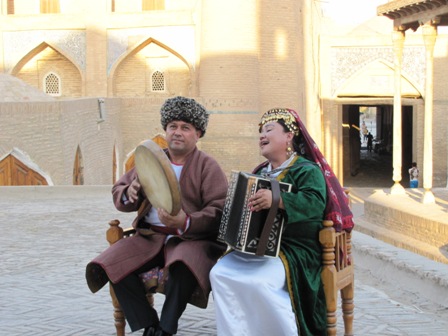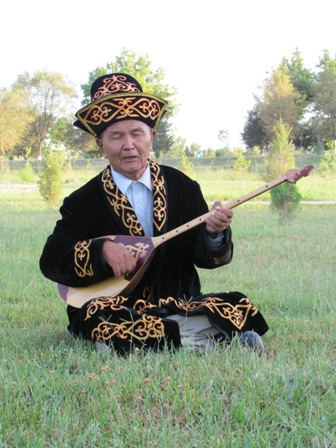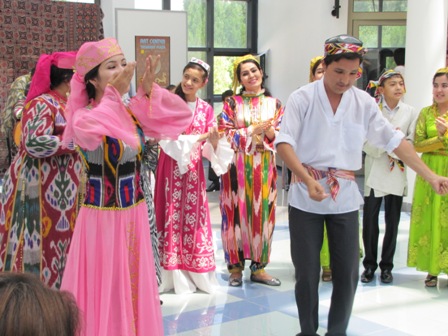|
Domain: Social Practices, Rituals and Festive Events
The life of every nation to a great extent is enriched by all possible events, rituals and ceremonies, which are associated with traditional family life, and which make up distinguishing features of national culture. Traditional folk rituals and ceremonies to be found in family life are considered to be the most valuable sources for learning culture, its evolution and ethno-genetic linkages. |
|
Domain: Social Practices, Rituals and Festive Events
Beshik toy (the ceremony, organized on the occasion of putting baby to beshik for the first time) is considered to be one of the most widely spread family-related ceremonies in Uzbekistan that has ancient origins. As a rule, it is organized with participation of the relatives and neighbors on the seventh, ninth and eleventh day after baby's birth or on any other day with mutual consent of parents of the newly married couple. In beshik toy ceremony the participants are women only. And it is this feature that makes it different from other family-related ceremonies. |
|
Domain: Social Practices, Rituals and Festive Events
One of the ceremonies, which have been preserved among Uzbek people, is called "oghil toy" and is conducted on the occasion of circumcision. In different regions of Uzbekistan it is known under different names, such as "sunnat toy", "chuqron", "khatna toy", "qolini halollash (poklash)". |
|
Domain: Social Practices, Rituals and Festive Events
Among Uzbeks there was a tradition to celebrate the transition of boys and girls from childhood to adolescence called "muchal age". Muchal age was celebrated solemnly and marked transition from one stage of life to another. |
|
Domain: Social Practices, Rituals and Festive Events
"Nikoh", being Arabic word, means official solemnization of marriage, matrimony, based on Shariah. Festivity on the occasion of wedding bears different names in different places of Uzbekistan, i.e. "nikoh toyi", "ijob toyi", "uy tushirar toyi", "kata yaloq qizartirar toyi", etc. |
|
Domain: Social Practices, Rituals and Festive Events
Palov (or osh) is the most beloved and highly regarded food among Uzbeks. It is spread in all regions of Uzbekistan. Palov accompanies Uzbeks throughout their lives. |
|
Domain: Social Practices, Rituals and Festive Events
In Uzbekistan, a ceremony, which is carried out at groom's house with participation of close relatives and neighbors after wedding ceremony, is called "yuz ochdi". During the ceremony, the people gathered give their presents to the bride. The ceremony is called differently across Uzbekistan and it bears such names as "Yuz ochdi", "Yuz korsatar", "Bet ochar" or "Rokushon" (in Tajik language the word "ro" means "face" and "kushon" – "to open"). |
|
Domain: Social Practices, Rituals and Festive Events |
|
Domain: Social Practices, Rituals and Festive Events
Navruz is a new day, a majestic day in the lives of the people. It is the festivity, the first day of solar calendar. It is the most ancient holiday of the peoples living in Central Asia and the East. The day of Navruz festivity matches with that of spring equinox (21 or 22 March), i.e. when the sun enters the constellation of Aries. |
|
Domain: Social Practices, Rituals and Festive Events
Sumalak sayli is an essential part of Navruz festivity. It is an event, which embodies national as well as universal human values, a bright example of intangible cultural heritage. Sumalak, being the main food that is offered during Navruz festivity, is considered to be delicious and tasty. |





